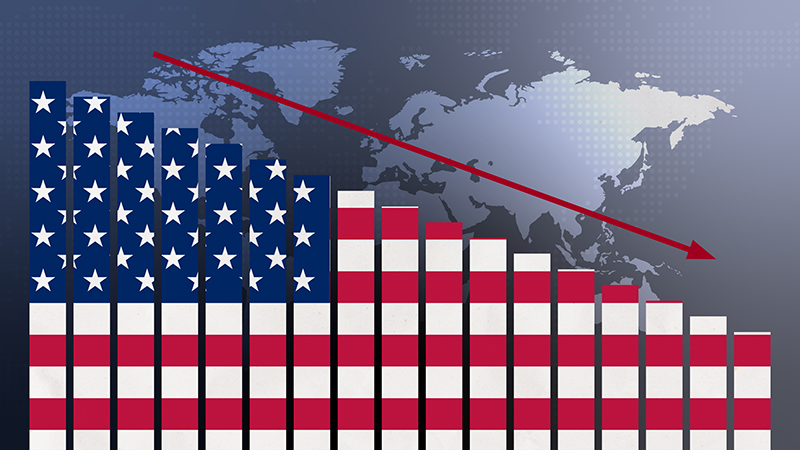While in recent months there have been signs that the love affair for UK funds has been abating – with the IA UK All Companies, UK Equity Income and UK Smaller Companies sectors all witnessing significant outflows – it is still home to a significant portion of investors’ portfolios.
According to the IA’s most recent statistics, in June this year the three sectors combined held £245bn funds under management. This is more than double the £108m invested in the IA Global and Global Equity Income sectors, although in June Global funds were the most popular among investors, taking in £465m of net retail sales.
Better off global
However, according to Martin Currie, hidden flaws mean that UK equities have lagged behind global equities in recent years.
According to its research, an investor who had invested the current Isa limit of £20,000 five years ago, would today be £8,300 better off if they had put this into global equities rather than staying at home and investing in the UK.
Mark Whitehead, manager of the Securities Trust of Scotland – a globally invested investment trust – says while a home bias is perfectly understandable, owing to the familiarity people may have with home-grown firms, he argues it adds a “significant level of risk” and limitations which could be very costly in the long term.
“Even the largest single nation economy can lack diversification and the UK market suffers from a relatively extreme level of concentration,” says Whitehead. “Over 53% of the FTSE 100 is in financials, consumer goods and oil and gas.”
Given the volatility of the latter, and the current pressure on commodity prices, Whitehead says it is clear how an overexposure to the UK could result in “wide swings in value”.
“By investing globally, we can avoid the risks inherent in single country exposer, but it also opens up the investible universe and allows us to access some of the best companies in the world, regardless of sector or location,” he says.
“Look at the giants of the technology sector and some of the biggest growth stories in recent times: Apple, Facebook, Tencent, Samsung and Alibaba to name just a few. The unfortunate fact is that none of them are UK companies. In fact, the recent sale of ARM holdings to a Japanese company means that there are almost no significant technology companies left in the UK.”
Exposure to risk
The result, says Whitehead, is that investors exclusively in UK funds will have no chance to access the extraordinary growth of these companies, and their portfolio will have lagged accordingly.
While home bias has often led to investors missing out on some strong returns, Adrian Lowcock, investment director at Architas, argues it has also meant they have been protected from riskier markets.
“There is a natural tendency to favour your home market because it is familiar and there are arguably fewer risks, currency being one,” he says. “However, for many investors this leads to a chronic under exposure to other markets.”
One of the factors behind this, Lowcock says, has been the difficulty in accessing them.
“While the US and Europe remain significantly under invested for a range of reasons, including cultural difference, for years overseas shares were hard to access,” he says. “However, technology has made it easier to invest overseas, reduced costs and improved transparency. Regulation has also become more co-ordinated, especially with the EU.”
It’s a small world
As a result, while Lowcock says there remains a specific risk to investing overseas, he argues it still can help reduce risks by aiding diversification and providing investors access to new and different sectors and income sources.
“The current picture looks more extreme, as within the performance figures is the effect of the EU referendum result and Brexit,” he says. “Up to the vote the FTSE World had returned 53.73%, compared with the FTSE All-Share returning 36.68% (from July 31, 2012).
“The effect of the devaluation of the pound following the vote has been significant on overseas investments, but is unlikely to be repeated to the same extent. At the same time there have been trends within markets which have not favoured the UK; a weak oil and commodity price and a bias toward tech stocks to name some.”
Ryan Hughes, head of fund selection at AJ Bell Investments, says while home country bias is an investor trait across the world, investors need to recognise the global economy is changing and becoming more global by the day.
“The FTSE 100 index no longer represents the UK economy and many investors will likely be surprised by how international their ‘UK’ investments have become,” he says.
“Investors should now think about accelerating the shift away from the home bias and look to build a globally diverse portfolio. This will help them remove their reliance on a narrow range of sectors and bring genuine diversification benefits, but first they must accept that this will mean investing in some companies they have never heard of.”
Lowcock agrees. “Investors shouldn’t shun the UK but they should be considering more exposure to the global economy, the US, Europe, Japan but also Asia and emerging markets. A well diversified portfolio would have protected you from the impact of Brexit and any future regional events.”











